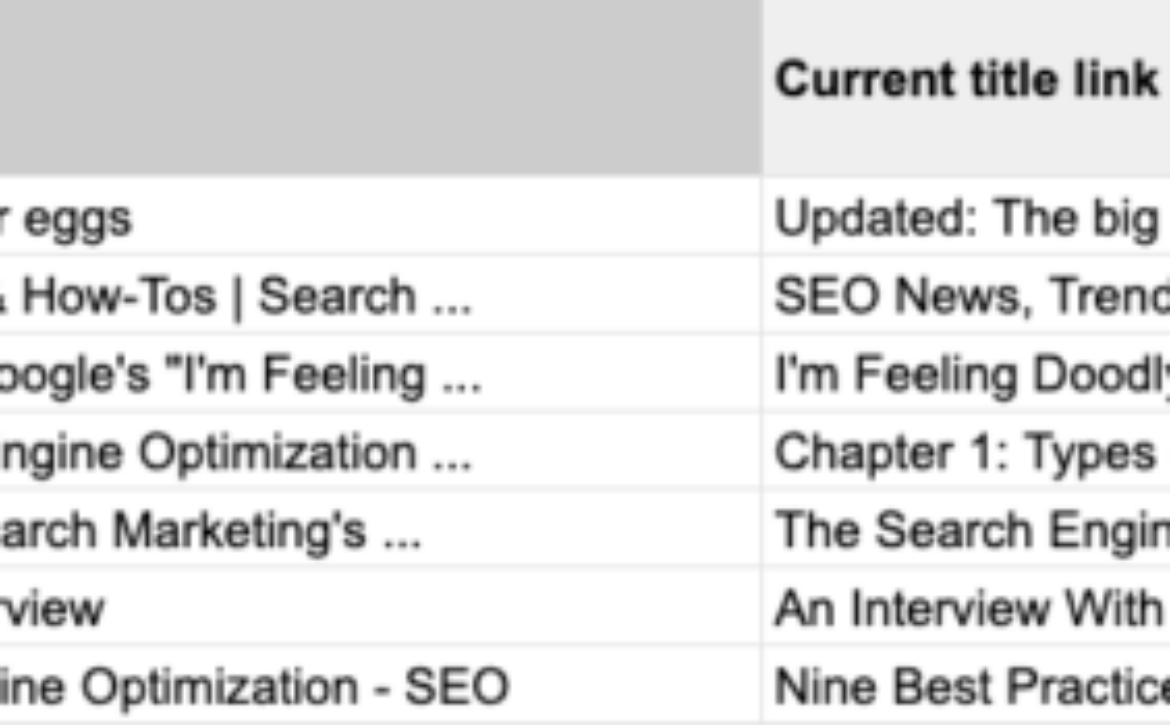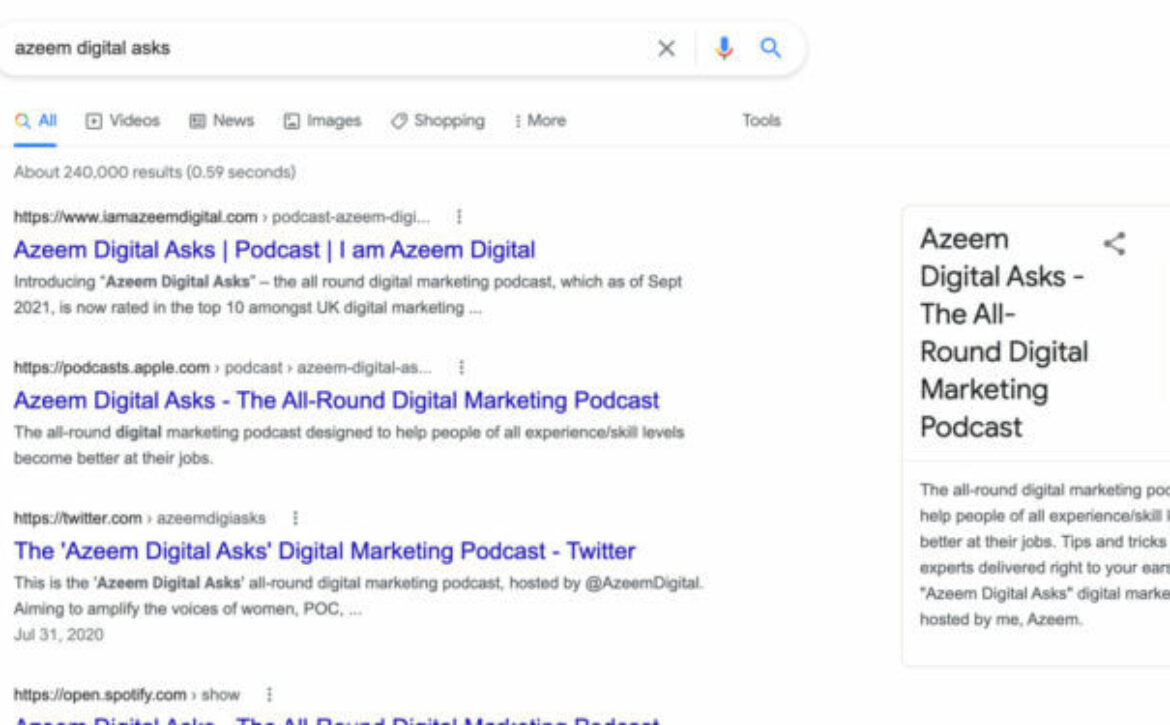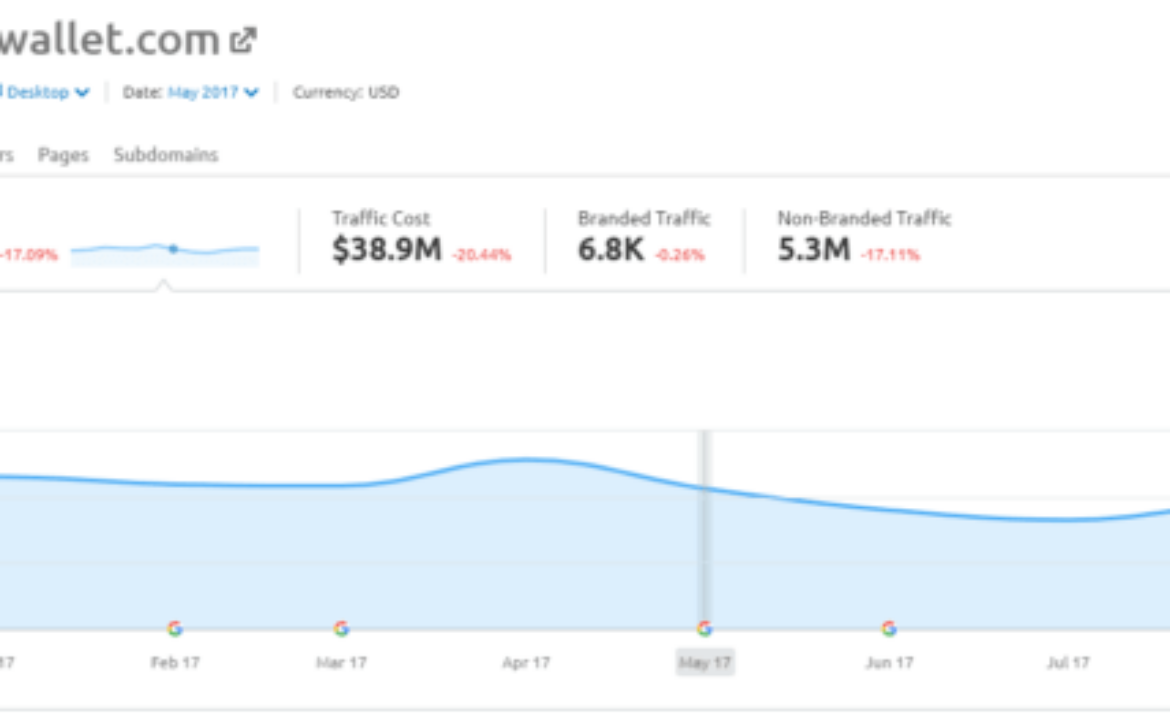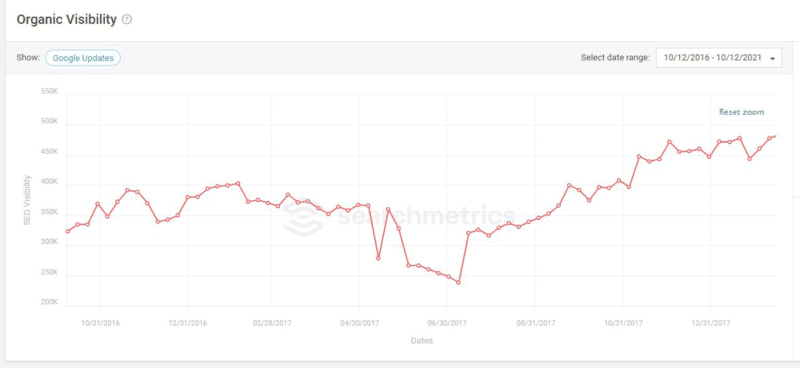Navigating Google’s title changes: The rollout, what’s happening now and what you can do about it
In August, Google introduced a new system for generating title links (the title of a search result in Google Search). “This is because we think our new system is producing titles that work better for documents overall, to describe what they are about, regardless of the particular query,” the company explained.
However, during the new system’s initial rollout, SEOs provided example after example after example of titles that not only failed to describe what the page was about, but may also confuse users and deter them from clicking through. Fortunately, the situation has since improved, but placing blind faith in Google’s new system can mean that you’re ceding control over a crucial aspect of your content, which could ultimately affect your business. Below, you’ll find a synopsis of how Google’s title changes have evolved, how you can verify whether your titles have been changed and what you can do to regain control over them.
Title changes: Then and now
A tale of two title changes. Google has been adjusting titles links for a long time. In 2014, the company explained that it might change a title to match the query (to a certain extent). This is an important detail because Google would later cite these historical practices as precedent for its new system — a justification that some SEOs found misleading as the magnitude and impact of the changes contrast sharply.
“[More recently,] I’m rarely seeing examples in the wild of noticeably worse rewrites for large-scale sites that I’ve done in-depth audits for,” said Brodie Clark, Australian SEO consultant, “This was definitely not the case initially (for about a month post-update), but Google seems to have since turned down the dial and made the update work as intended.” The other SEOs that spoke to Search Engine Land for this article shared similar experiences.
The first weeks of the title change rollout. When the new title change system rolled out in August, SEOs took to Twitter to share examples of poorly rewritten titles in the search results. “While many of the title overwrites made sense and were unlikely to negatively affect performance, there were many (too many) examples of title overwrites gone awry,” said Lily Ray, senior director, SEO and head of organic research at Amsive Digital.
SEOs feared that rewritten titles might be inaccurate or simply worse than what was in the title tag. While the title changes do not affect rankings, the title itself can influence clickthrough rates (CTR), thus also potentially impacting business KPIs such as revenue. Consequently, Google’s botched rollout of title changes fueled a movement among some SEOs who demanded a way to opt-out of the changes.
At one point, Danny Sullivan, a cofounder of Third Door Media (Search Engine Land’s parent company) and now public liaison for Google Search, also advocated for a similar feature: “As a site owner, I hate this. I want Google to use whatever page title I give it. Google argues back that it has to be creative, especially in cases where people have failed to provide titles. I’ve argued in the past that as a solution, Google should provide site owners with some type of ‘yes, I’m really really sure’ meta tag to declare that they absolutely want their page titles to be used.”
The nature of Google’s title rewrites. “It appeared that Google was truncating some article headlines in strange ways that changed the meaning of the title,” said Ray, “In other cases, it seemed that punctuation, like quotation marks or dashes, caused the title to break early. In even rarer and stranger situations, Google would choose anchor text or other article text to display as the title, which was occasionally taken out of context and was a poor representation of the full page content.”
“[Google] seemed to latch on to any type of header tag and really didn’t like the pipe character and overt branding,” said Colt Silva, SEO engineer at iPullRank. During our own analysis of Search Engine Land titles that changed in the search results, we also noticed that Google had a proclivity for removing the pipe character.
Google has since improved its system for rewriting titles (more on that below). To illustrate some of the types of title rewrites that we’re still seeing in the search results, Clark assembled a collection of examples from Search Engine Land article titles.
Here is Clark’s analysis of some of the changes:
- There were many instances of adding the site name with a hyphen when the site name wasn’t included in the <title> tag. And additional examples where the vertical bar with the site name was changed to a hyphen (a commonality among sites that I’m seeing). Interestingly, most SEOs still prefer the vertical bar post-update.
- Long title tags that result in truncation are simplified at key sections of the snippet. For example, #3 has the removal of a complete section of the title link, with the site name then added in with a hyphen.
- Complete replacement was happening rarely for Search Engine Land, but there was the odd instance where Google was replacing the title link, such as for #4. In this example, the H1 was taken to replace what had been written in the <title> tag.
Google has since improved its title rewrites. After the initial blowback from the SEO community, Google’s Danny Sullivan published a post explaining why Google made the title changes. Several weeks after that, the company published more help documents on controlling titles and descriptions in Search. Just as important, Google’s explanations seem to be accompanied by improvements to its title change algorithm.
“Fortunately, many people submitted feedback and examples to Google, which caused them to acknowledge that they were still refining the title change,” Ray said, “Since then, it’s clear Google has made improvements to the title overwrites and even reverted many of the worst offenders back to their original <title> tag.”
“As soon as title-change-mania started, we saw one of our biggest e-commerce clients have 5% of their title tags changed without any real effect on their CTR,” Silva said, “Shortly before the Google announcement of rollbacks, we saw it drop to 2%. The client was concerned about a couple of high-traffic keywords, but those have since been rolled back and it’s no longer a point of discussion in any of our meetings.”
What to do if you suspect Google is changing your titles
If you’ve noticed fluctuations in your CTRs, it may be worthwhile to investigate whether Google has changed your title link. SEOs and tool providers have come up with numerous ways to do this — we’ll discuss a few of them below.
“Essentially, you’ll need a way to start tracking and trending titles. You’ll need to collect your site’s popular search terms, and then gather the Google SERPs title and compare it to the actual title,” Silva said, adding, “This Search Engine Land article is a solid highlight of options to track title changes. In addition to that, there’s Thruuu, Keywords in Sheets solution, and this creative bookmarklet to inject titles into a SERP.”
Ahrefs users also have a new tool that enables them to export title changes for deeper analysis. Brodie Clark has provided instructions on how to get started with it and how he analyzes the data.
The new tool is in the “Top pages” tab underneath the “Site Explorer 2.0” heading. Once you’re there, you’ll have to toggle the “SERP titles” button and change the date for comparison. Next, you can export the data for analysis.
“There are important aspects to keep in mind when interpreting the data to ensure you’re getting an accurate depiction,” Clark said, recommending that SEOs remove new URLs and URLs that are no longer ranking so that they’re only looking at titles that are eligible for comparison.
“Changing the grouping of the rows to the top pages based on est. traffic that has had a title link change, we can see trends for what has changed,” Clark said. At this point, you’ll have to perform a manual review. “When completing the manual review, you’ll also need to look out for titles that have manually changed for pages during the comparison period,” he added.
What you can do if you’re unhappy with how Google changed your titles
Some titles may still be unsatisfactory — it can be argued that the example in line #3 from the chart above is less informative than the original title, for example. Unfortunately, there is little you can do to directly change Google’s title links, but embracing a more holistic view of the issue can help you craft more informative titles and avoid bad rewrites from Google.
One thing you can do to bring a particularly inaccurate title change to Google’s attention is to submit feedback: “Google created a form where you can submit your feedback for incorrect or egregious titles,” Lily Ray pointed out, “Otherwise, pay attention to when the overwrites take place and what they look like; this could provide insight into potential issues Google may have with your titles and offer some inspiration about how to adjust them. Google also offers clear examples about the types of titles it intended to overwrite, so you can evaluate whether your titles fall into any of those categories.”
“If you’re seeing poor title links for your site, try to look at it from a non-biased point of view,” Clark recommended, “Are you keyword stuffing? Is the title accurate enough? Is the text using too much boilerplate content? All are important aspects to consider before making the judgment that Google has done something wrong. If you’re confident that they are at fault, try to make the on-page content more closely aligned with what you’re trying to achieve.”
“This is the perfect opportunity to start testing,” Silva said, recommending that SEOs “Follow the scientific method from hypothesis to conclusion and find why an algorithm has latched onto a specific block of text [to replace your title tag]” Since you’re likely in control of your title tags and on-page content, you can use these levers to see what works for your business, your audience and Google’s algorithms.
The more things change, the more they stay the same
For SEOs. We’re now accustomed to optimizing for rich results, featured snippets, knowledge panels and dozens of other non-traditional search features, but titles — as Google has now reminded us — are one of the oldest forms of on-SERP SEO. While its system for title links has improved, SEOs will have to double-check their titles moving forward to ensure that they follow Google’s guidance so users see what we intend for them to see, instead of an inferior title scraped from anchor text, for example. This will simply have to become part of your workflow and best practices will adapt to account for Google’s title changes.
For the industry. We rely on Google for traffic and Google relies on us for content to show users. When the title changes rolled out in August, Google said it wasn’t new, which was only half-true as the search engine has been known to replace titles, but had not done so to the extent that we’ve recently experienced. What’s more, it was showing title links that could have confused users and deterred them from visiting our pages. It cannot be said for certain that SEOs holding the company accountable for the flaws in its new system was what moved the needle and got Google to “revert many of the worst offenders back to their original <title> tag,” as Ray put it, but it is something that search marketers will likely have to continue to do in order to advocate for our businesses and the audiences they serve.
The post Navigating Google’s title changes: The rollout, what’s happening now and what you can do about it appeared first on Search Engine Land.











